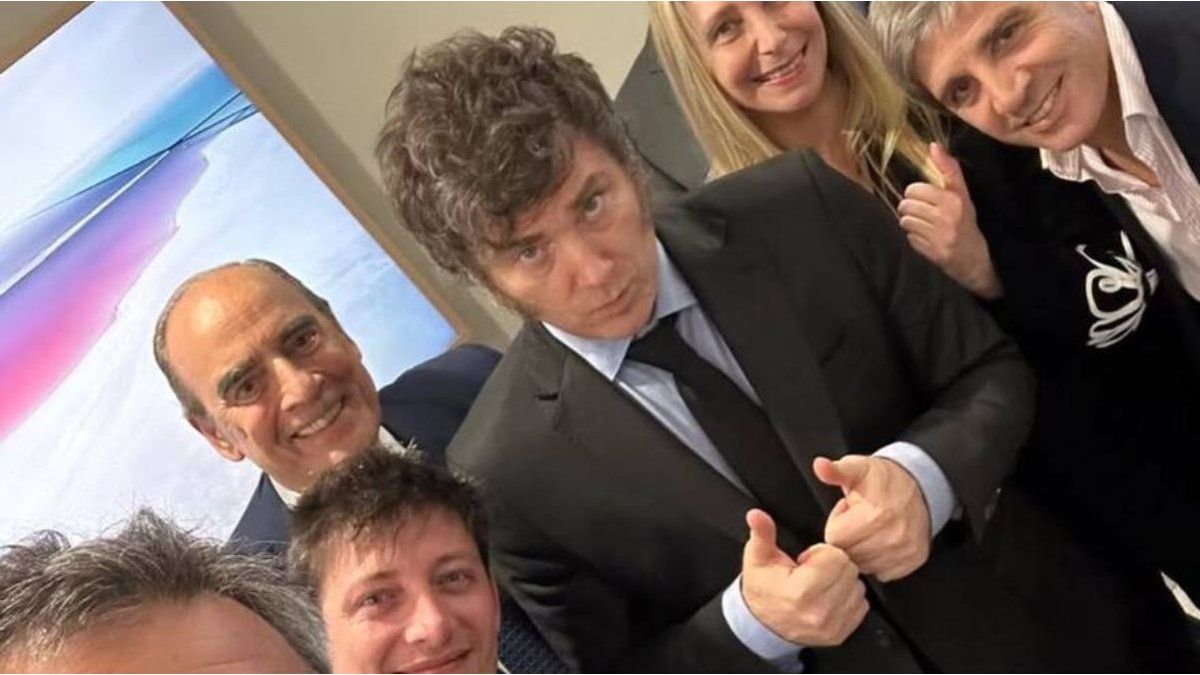The Caputo-Milei experiment reintroduced the crudest logics of Wall Street in Argentina. Are we facing a financial miracle or in front of the germ of an upcoming crisis? Wall Street is not just a place. It is a belief system.
A symbolic, institutional and technological ecosystem that has built a kind of secular religion based on faith in markets, Dogma of deregulationthe Speculation as virtueand greed as the engine of progress. On that altar, Argentine president Javier Milei and his Minister of Economy, Luis Caputo, who have imported – without the principles of that logic to a fragile, unequal and politically vulnerable country are kneel.
Instead of representing a stabilization plan with national look, The “Caputo Model” can be read as an extreme referral of the Wall Street ethos: algorithmic domain, promises of trust for insiders, narrative of “risk and gain” for the middle class, and eternal sacrifices for the majorities. This time, with chainsaw on the altar and bonds as a financial host.
The return of the debt minister
Caputo, whose career is intertwined with funds such as JP Morgan, Deutsche Bank and the mythical and controversial investment funds, already starred in one of the darkest episodes of recent Argentine indebtedness, returns with the flag of austerity, but with the same libretto usual: debt, semi -libre exchange rate, carry trade and future investment promises.
The problem is not only the recipe, but the context: Derumba from the relationship prices and salaries, repressed inflation and a country climbing the social conflict. To this A communication strategy that masks technocracy with libertarian marketing is added. The slogan is none other than to leave the markets that affect the lives of citizens As if they were wise godsalthough Argentine history shows that, without regulation, Those gods punish more than they bless.
Wall Street as secular religion
French sociologist Bruno Latour explained that technological networks also produce faith. In Wall Street, that faith is set on quantitative models, prediction algorithms, “rational expectations” and risk rating. This sociotechnical network is imposed on governments and societies, shaping political decisions that prioritize the logic of financial flows on the needs of populations.
Milei adopts that narrative as a libertarian crusade. But Far from being anti -system, he is enhancing it; Turn the Argentine State into a vehicle for financial fundamentalism. Meanwhile, the democratic system is weakened, subsumed under the logic of a market that does not vote, but imposes.
Argentina as a sacrifice zone
The Argentine case resembles what Naomi Klein would call a “Financial sacrifice zone”. Retirements are frozen, productive structures are destroyed, essential infrastructure maintenance expenses are blocked, and everything is subject to support an illusion of stability that depends of three fine threads: the humor of the investors, the fiscal obedience of the Congress, and the veto of Milei.
The surplus achieved is not an efficiency product, but of liquefaction. There is no serious structural reform, or productive investment. There is only financial income in a country that ceased to look at the industry as development engines.
Is there an alternative to this extreme financing?
Yes. But it demands intellectual and political courage. Participate partially decking finances, rethinking the role of the Central Bank, implementing a legal framework that protects productive credit, and rebuilding a tax system that adequately records speculative capital. None of this is easy, but Following the Dogmas of Wall Street has proven to be a recipe for collapse.
There is no magic, there are models
What we live is not an economic miracle. It is the deployment of a model – implied, exclusive and volatile – that Sooner or later explodes if it is not articulated with social reality. Argentine history has sufficient chapters to warn that, When the economy becomes a casino for few, the consequences are crises for many.
The question is not whether the markets will bless us, until when we will tolerate that we govern a religion without a soul or country.
Director of Esperanza Foundation. Postgraduate professor at UBA and private universities. Master in International Economic Policy, Doctor of Political Science, author of six books.
Source: Ambito
David William is a talented author who has made a name for himself in the world of writing. He is a professional author who writes on a wide range of topics, from general interest to opinion news. David is currently working as a writer at 24 hours worlds where he brings his unique perspective and in-depth research to his articles, making them both informative and engaging.




